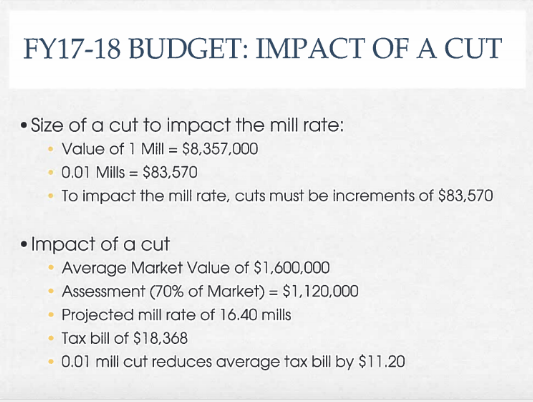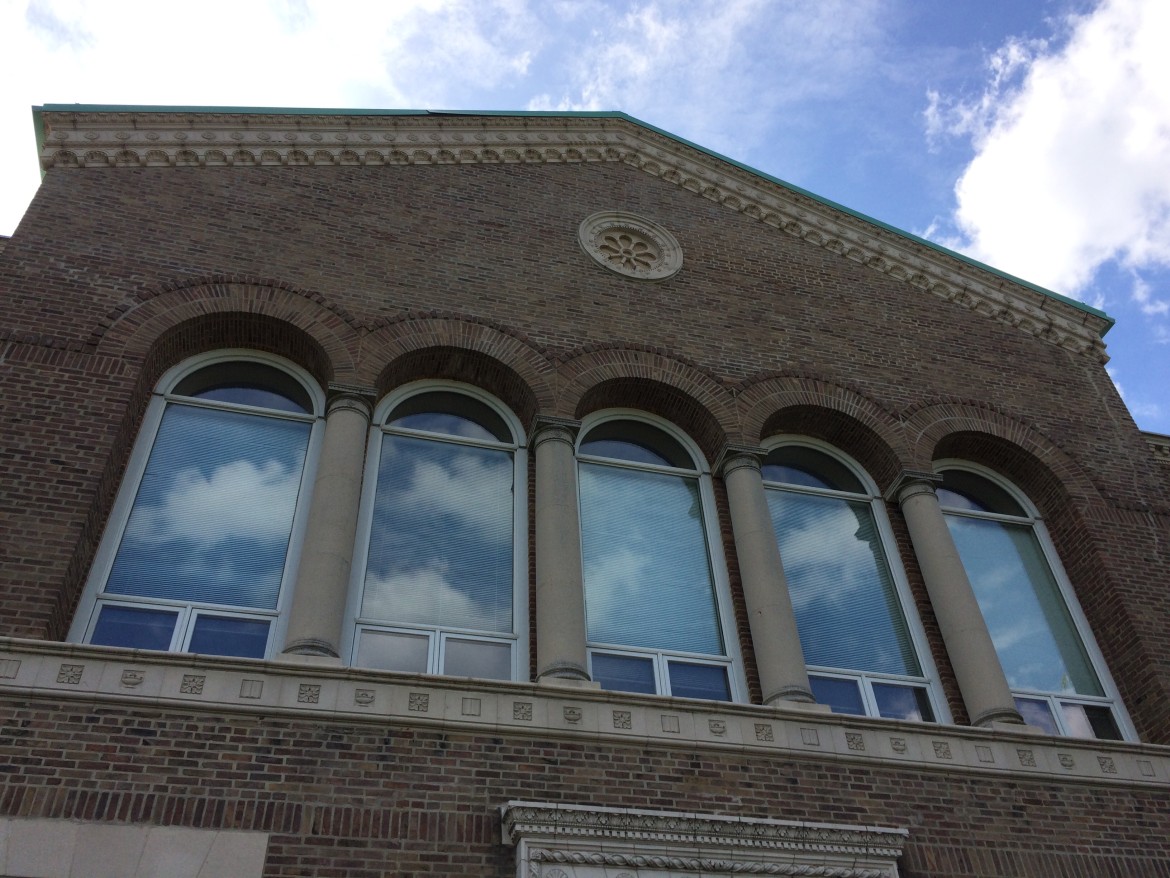The Board of Selectmen unanimously voted Monday night on a budget for non-school district spending only slightly higher (by $137,438) than the budget passed last year.
Total town spending (aside from the education budget, which is more than twice as big) would be $46,835,834. That increase in spending, if approved by the Board of Finance and Representative Town Meeting, would amount to a slight tax increase of perhaps 0.01 or 0.02 mills (town officials did not have exact figures Monday night).
The school superintendent’s proposed budget, with a 2 percent increase, would cause a larger bump up in taxes. Countering the increased spending, growth in the grand list since the previous year, almost 1 percent, would reduce the size of the tax increase. Darien property owners paid taxes at a rate of 15.88 mills ($15.88 per $1,000 of assessed value).

When town officials came up with these figures, they only had the 2015 Grand List to work with. The 2016 Grand List has since come out, and it’s reported to be about 1 percent larger, so that would make a slight difference calculating tax impacts — but only a slight difference.
In comments before the vote, all five selectmen expressed frustration with Gov. Dannel Malloy’s proposals both to eliminate state aid for wealthy towns like Darien and impose new costs, including payment of one third of the state teacher’s pensions. All told, the governor’s proposals, if approved by the Legislature later this year, could cost the town $6.4 million in additional tax burden, First Selectman Jayme Stevenson said.
In passing the town budget after weeks of budget hearings, selectmen cut the $47,424,286 budget presented by Town Administrator Kathleen Busch on Jan. 24 by $451,014.
In all, First Selectman Jayme Stevenson said, the board had made “$684,198 in changes” to the town administrator’s budget. It wasn’t clear Monday night what other changes were made.
Spending and Town Taxes Out of the Town’s Hands
All of the calculations of the tax impact would be swamped by potential higher spending based on new burdens Gov. Dannel Malloy is proposing. The state Legislature would have to pass the proposals, which are meant to help the state’s budget problems.
The selectmen all appeared to agree that it wasn’t worth trying to drastically cut town spending in order to lessen the impact of any possible state-imposed increased tax burden because they couldn’t predict what the state Legislature will do with the governor’s proposals in upcoming months.
Stevenson said that as one of the state’s wealthier towns, Darien is on the losing end of the governor’s budget and town aid proposals. “I understand the state’s fiscal quandry, not only in their own right,” but also in providing aid to cities and towns that are “underperforming” in terms of their economies and tax bases.
Darien shouldn’t expect state funds “of any great measure” this year or in future years. She said the town should look at whether it might sue the state for some money. Later she mentioned special education, saying that it may violate federal law for the state to deny special education funding for the town’s special education students just because they live in a wealthier community.
She said the town might get advice from the town attorney or the law firm working for Darien Public Schools or possibly another lawyer or lawyers, and doing that should be a joint decision with other town officials, including members of the Board of Finance and Board of Education.
She added that she has sympathy with the general idea that a town should have “skin in the game” regarding paying for teacher pension benefits, since the towns employed the teachers and set their salaries. Towns did not have a say in how the state’s teacher pension fund was managed over the years.
“I have a problem with the philosophy of this proposed budget” of the governor’s, said Selectman Rob Richards, a Democrat. The governor’s proposal “just doesn’t seem fair, but I do understand people [elsewhere in the state] are in trouble.” He said the sudden dumping of millions of dollars of demands for money on the town was unfair.
Selectman Susan Marks, a Republican, said that over the weekend she thought about whether the Board of Selectmen should change spending plans in the face of the governor’s proposals, but she said “we’ll have to deal with that once we know a little more,” and it will be the Board of Finance or RTM that will deal with it at that point.
Marks said all four of Darien’s legislators should be working with town officials more in the face of the state’s challenge to the town’s budget. “I just hope we can have the dialogue (with Darien’s legislators) sometime before June [when the Legislature is expected to vote on the budget].”
Selectman Marc Thorne, a Democrat, said that there have been many years to fix problems with the teachers retirement fund, a state responsibility that the town never had a say in, and now the town is expected to pay the price for those mistakes. Financing the problem with property taxes (just about the only source of revenue the town has) is the type of financing that the Connecticut Conference of Municipalities has long said Connecticut should move away from, he said, but now the governor is proposing it.
Selectman Kip Koons, a Republican, said, “Democrat and Republican, everyone’s to blame for this hole [in state financing] that we’re in,” but Darien’s paying a higher price, he said, “because we’ve been well-managed, we’re getting penalized as being wealthy.” Cities and towns in worse fiscal straits are often in bad shape because they’re not well-managed, he said.
Stevenson, a Republican, said that a town having a larger grand list per capita is not necessarily the best yardstick for its ability to pay more taxes, since that hurts people with higher-priced homes who may not immediately have the income to support higher taxes, creating a cash-flow problem. She added that small businesses that pay property taxes may also face difficult new costs.
What’s Next for the Town Budget
The Board of Finance will now take up the town (non-education) budget and then recommend their budget proposal to the Representative Town Meeting, which will consider it and the education budget in an annual budget meeting scheduled for May. The next fiscal year begins July 1, and the RTM will need to vote before that. The state Legislature tends to vote on the state budget in early June.
The Board of Education has not yet approved a budget to send to the RTM.
Selectmens’ Spending Changes
Selectmen cut various spending items in the town administrator’s budget presentation. Among the cuts:
- Mural restoration — $20,000
- Town Hall walkway to a loading dock — $20,000
- Playground equipment for Cherry Lawn Park — $30,000
It wasn’t clear Monday night what other cuts were made.
More Spending on Some Projects
The Board of Selectmen continued a multi-year plan to gradually add civilian employees to answer 911 calls at the Police Department. That frees up (higher paid) police officers for police work, resulting in the town eventually saving money (or spending it more efficiently if police staffing isn’t reduced), police and town officials have said.
The board also approved continued spending on new staff in the Planning Department. New staff (already hired) is helping the town with zoning changes and site plan approvals, including for three large commercial redevelopments in downtown Darien (the Baywater Corbin project) and in the Noroton Heights business district (two proposals — one from the Palmer family and another from Federal Realty).
Commercial redevelopment of all three areas is expected to increase town tax revenue over the long run, since each property will be worth more and get higher tax assessments. The town is increasing developer’s fees for site approval work, particularly on large projects.
The fee increases are expected to raise more than $120,000 a year, which happens to be roughly what the new staffing would cost in the P&Z Department. Last week, the Board of Selectmen moved up the date for the fee increases from July 1 to March 1.


Pingback: RTM to Vote Monday on Teachers Union Contract — the Biggest Part of the Town's Next Three Budgets - DarieniteDarienite